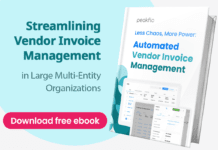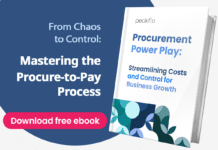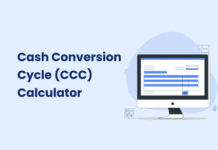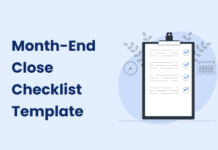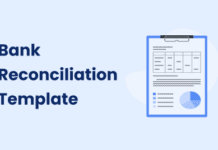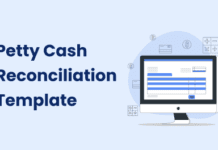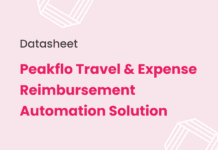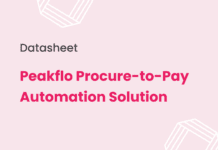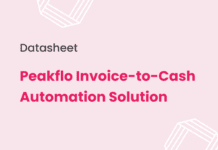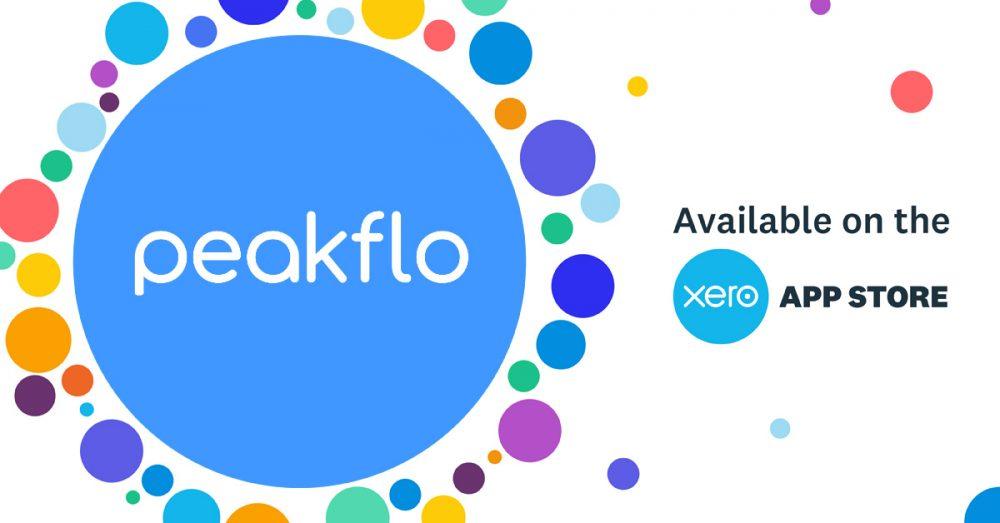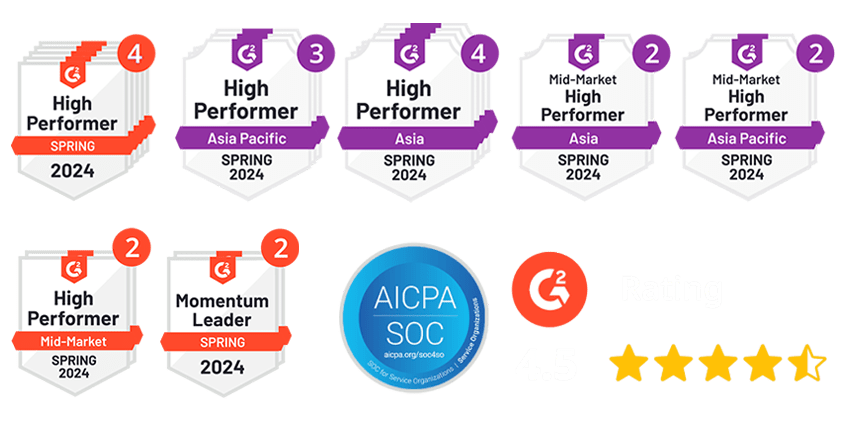Custom AI agents are specialized artificial intelligence systems built to handle specific business tasks within your organization. These systems work independently to solve particular challenges, unlike general-purpose AI tools that offer broad but often surface-level capabilities.
The appeal of custom AI agents lies in their ability to scale operations without proportional increases in staffing costs. These systems adapt and improve over time as your business needs change and new data becomes available. This adaptability makes them particularly valuable for organizations looking to maintain efficiency as they grow.
Understanding custom AI agents requires looking at both their strengths and limitations. While they offer compelling advantages for many business operations, they’re not suitable for every situation. Some organizations find significant value in their implementation, while others discover the costs outweigh the benefits.
This article examines what makes custom AI agents different from standard AI tools, explores their practical benefits for business operations, discusses important limitations you should consider, and identifies the most effective applications across various industries. Whether you’re considering AI implementation for the first time or evaluating your current systems, this information will help you make informed decisions about incorporating custom AI agents into your operations.
What Makes Custom AI Agents Different
Image Source: Springs
Custom AI agents operate differently from standard AI tools you might already use. These systems focus on solving specific problems within your business rather than providing general-purpose assistance.
Built for Your Specific Business Processes
Custom AI agents work because they’re designed around your particular workflows and requirements. Standard AI tools use broad training data and generic responses, but custom agents learn your organization’s specific language, procedures, and data patterns.
This specialization allows you to deploy different types of agents based on your needs:
- Task-specific agents handle repetitive, well-defined functions like data entry or report generation
- Conversational agents maintain context about your business during customer interactions
- Decision-making agents analyze your data and provide recommendations based on your criteria
- Multi-modal agents process various input types including text, images, and voice simultaneously
The difference becomes clear when you compare how a standard chatbot might handle customer inquiries versus how a custom agent trained on your product knowledge base and customer history responds.
Independent Operation Without Constant Oversight
Custom AI agents can make decisions and take actions without requiring human approval for every step. They operate through a cycle of gathering information, analyzing options, executing actions, and learning from results.
Here’s how this autonomous operation works:
The agent collects real-time data from your systems, databases, or external sources. It then processes this information using specialized algorithms to determine the best course of action. After deciding, it executes the chosen action by interacting with your systems or external services. Finally, it evaluates the outcome and adjusts its approach for future similar situations.
This capability goes beyond simple automation rules. While basic automation follows “if this, then that” logic, custom AI agents can plan multiple steps ahead and adapt when conditions change unexpectedly.
Learning and Improving Over Time
Custom AI agents get better at their jobs through continuous feedback and adjustment. They track their performance, identify areas for improvement, and modify their behavior based on results and user input.
This learning process happens through several mechanisms. The agents analyze user feedback to understand when their responses or actions were helpful or problematic. They monitor their own output quality and flag potential issues for review. They also adjust their decision-making based on successful and unsuccessful outcomes.
This adaptive capability means the agent becomes more valuable over time, learning your organization’s preferences and improving its accuracy as it processes more data and receives more feedback.
Why Custom AI Agents Matter for Your Business
Image Source: Softjourn
Custom AI agents deliver measurable improvements that directly affect your operational costs and revenue. These systems address specific business challenges while providing quantifiable returns on investment.
Streamlined Operations
Custom AI agents handle repetitive tasks like scheduling, data entry, and reporting, freeing your team to focus on strategic work. They connect departments in real-time, enabling faster approvals and smoother information flow. Through continuous monitoring and immediate insights, they help you make proactive adjustments to maintain optimal operations. Organizations implementing AI report up to 54% cost reduction and efficiency improvements.
Round-the-Clock Availability
AI agents work without breaks, providing consistent service at any hour. Customers receive immediate responses regardless of time zones, increasing engagement and reducing lost opportunities. These systems process hundreds of interactions simultaneously without proportional cost increases. You can scale from 1,000 to 10,000 users without sacrificing service quality or requiring significant hiring.
Better Decision Making Through Data
Custom AI agents analyze real-time data to provide actionable insights for business decisions. They identify anomalies instantly, enabling immediate responses to problems or opportunities. The intelligence layer offered by agentic AI continuously monitors and enhances analytics with minimal oversight. This transforms analytics from a retrospective function to a forward-driving engine with strategic alignment.
Measurable Cost Reductions
Businesses implementing AI agents achieve significant savings:
- 30-40% cost reductions in customer service operations
- 20-30% reductions in warehousing costs through inventory optimization
- 15-25% decreases in overtime expenses
- Up to 50% reduction in marketing costs through improved targeting
Personalized Customer Experiences
AI personalization creates tailored experiences that directly impact revenue. Organizations prioritizing customer experience through personalization see three times the revenue growth of their peers. These systems analyze user behavior to deliver contextually appropriate experiences that boost engagement and satisfaction. Personalized marketing campaigns driven by AI achieve 40-60% higher conversion rates than traditional approaches.
Consistent Accuracy
Custom AI agents maintain steady performance regardless of external conditions, with quality control systems achieving accuracy rates of 99.5-99.9%. Organizations report 80-95% error reduction in automated processes within six months of implementation. AI-powered analytics eliminate human bias by processing comprehensive datasets and providing objective recommendations.
Challenges and Limitations of Custom AI Agents
Custom AI agents offer compelling advantages, but they come with significant challenges that require careful consideration. These limitations can impact implementation success and long-term value for your organization.
Complex Implementation Requirements
Custom AI agents demand substantial investment beyond basic software purchases. These solutions require specialized development, custom training data, and complex API integrations. The implementation process involves more time, technical expertise, and financial commitment than pre-built alternatives. Studies indicate that over 40% of agent-based AI initiatives will be abandoned by 2027 due to insufficient return on investment. For smaller organizations, implementation costs often range from $300,000 to over $1 million.
Integration Difficulties with Existing Systems
Many businesses struggle to connect AI agents with their current technology infrastructure. Legacy systems often lack proper APIs, use inconsistent data formats, and store information in separate, disconnected systems. These integration challenges contribute to a 50% failure rate for AI projects. Legacy systems typically consume up to 80% of IT budgets, leaving limited resources for innovation.
Data Privacy and Security Risks
AI agents require access to sensitive business information, creating potential security vulnerabilities. A majority of organizations—53%—identify data privacy as their primary concern when implementing AI systems. These concerns arise from AI agents’ broad access to files, databases, and communication systems without clear boundaries. Organizations without robust security measures face risks of unauthorized data exposure.
Quality Data Requirements
Custom AI agents depend heavily on large volumes of high-quality, domain-specific data for effective operation. Acquiring sufficient training data presents ongoing challenges for many organizations. According to MIT research, 85% of AI projects fail due to data-related problems. Poor quality data leads to unreliable analytics and can turn promising AI agents into unpredictable business liabilities.
Where Custom AI Agents Work Best
Image Source: Pixelplex.io
Custom AI agents prove most valuable when applied to specific industry challenges that require consistent, data-driven decision making. These applications demonstrate where the investment in custom development delivers measurable returns.
Healthcare: diagnostics and patient support
Healthcare organizations use AI agents to handle both administrative tasks and clinical support functions. These systems analyze medical images, lab results, and patient histories to identify potential health risks before they become critical issues. AI diagnostic support agents achieve up to 98% accuracy in their assessments.
Virtual health assistants manage appointment scheduling, conduct symptom triage, and send medication reminders around the clock. This continuous availability helps healthcare providers maintain patient engagement while reducing administrative workload on clinical staff.
Finance: fraud detection and risk analysis
Banks and financial institutions deploy custom AI agents to identify suspicious transaction patterns in real-time. These systems spot anomalies that human analysts might overlook, processing thousands of transactions simultaneously.
AI-powered fraud detection systems help banks reduce false positives while catching fraudulent transactions up to 300 times faster than traditional methods. The same agents evaluate borrower data and market conditions to support lending decisions with consistent criteria.
Retail: inventory and customer service
Retail AI agents optimize inventory levels through predictive analytics, preventing both stockouts and excess inventory situations. These systems adjust pricing and stock levels based on customer behavior patterns and seasonal trends.
Customer service agents analyze purchase histories and browsing patterns to create personalized shopping experiences. Retailers using AI for inventory management report up to 48% optimization gains in their operations.
Manufacturing: predictive maintenance
Manufacturing companies use AI agents to monitor equipment performance and predict maintenance needs. These systems analyze sensor data from machinery to forecast potential failures, reducing unplanned downtime by up to 15%.
One manufacturer monitoring over 10,000 machines achieved ROI within three months of deployment, reporting millions in savings. The agents continuously evaluate equipment performance against baseline data, flagging even minor efficiency drops for immediate attention.
Education: adaptive learning platforms
Educational institutions implement AI agents to create individualized learning experiences for students. These systems assess knowledge levels, track progress, and adapt content delivery in real-time.
AI tutoring agents generate customized exercises, provide immediate feedback, and explain concepts when students encounter difficulties. This approach creates engaging simulations where students can practice real-world skills in controlled environments.
Logistics: route optimization and tracking
Transportation and logistics companies use AI agents to optimize delivery routes by analyzing traffic patterns, weather conditions, and delivery schedules. These systems reduce transit times and fuel consumption while improving delivery reliability.
AI route optimization has helped companies like UPS save around 100 million delivery miles and 10 million gallons of fuel annually. AI-powered tracking systems also provide real-time shipment visibility across air, sea, and road transportation.
Peakflo Plug-and-play Agentic Workflows
Peakflo AI Agents are built specifically for finance operations — not generic assistants. They automate repetitive AP/AR tasks (invoice triage, payment follow-ups, reconciliation), keep context across conversations, and act on rules you trust — freeing your finance team to focus on exceptions and strategy. Because they connect directly to your ERP, bank feeds, and customer history, they surface the right actions at the right time: nudge a late payer with a personalized script, propose an optimal payment date based on cash flow, or flag a suspicious transaction for review. Deploy them one workflow at a time, measure impact, and scale: common wins include faster collections, fewer manual errors, and predictable month-end closes. Built with security, audit trails, and human-in-the-loop controls, Peakflo AI Agents let you keep ownership while enjoying 24/7 reliability and measurable cost savings.
Ready to see Peakflo AI Agents in action? Book a demo with our experts today.
A Way Forward
Custom AI agents offer real benefits for businesses willing to invest the time and resources needed for proper implementation. These systems can handle specialized tasks, reduce operational costs, and provide consistent service when configured correctly for your specific needs.
Different industries have found success with custom AI agents in specific applications. Healthcare organizations use them for diagnostic support and patient scheduling. Financial institutions focus on fraud detection and risk assessment. Retailers apply them to inventory management and customer service. Manufacturing companies implement them for predictive maintenance.
The key to successful implementation lies in starting small and scaling gradually. Begin with a single use case where you can measure clear improvements, then expand to other areas once you’ve learned how these systems work within your organization.
Custom AI agents are not suitable for every business challenge, but they can provide significant value when applied to the right problems with proper planning and realistic expectations. The technology continues to evolve, making it important to stay informed about new developments while focusing on practical applications that deliver measurable results for your specific business needs.
FAQs
Q1. What are the main advantages of using custom AI agents in business? Custom AI agents offer improved operational efficiency, 24/7 availability, data-driven decision making, cost savings through automation, personalized user experiences, and reduced human error in repetitive tasks.
Q2. How do custom AI agents differ from general-purpose AI tools? Custom AI agents are tailored to specific business needs, possess autonomous decision-making capabilities, and continuously learn and adapt. They are designed to address unique challenges within an organization’s environment.
Q3. What are some potential limitations of implementing custom AI agents? Some limitations include high implementation costs, integration complexity with legacy systems, data privacy and security concerns, and dependence on high-quality training data.
Q4. In which industries are custom AI agents proving most effective? Custom AI agents are showing significant impact in healthcare (diagnostics and patient support), finance (fraud detection and risk analysis), retail (inventory and customer service), manufacturing (predictive maintenance), education (adaptive learning), and logistics (route optimization and tracking).
Q5. How much can businesses save by implementing custom AI agents? Businesses can achieve substantial cost savings, including 30-40% reductions in customer service operations, 20-30% in warehousing costs, 15-25% decreases in overtime expenses, and up to 50% reduction in marketing costs through improved targeting.

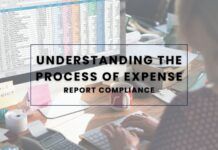







![Why AI Sales Calls Are Making Good Sales Reps Even Better [2025 Guide] ai sales calls](https://cdn-kmjmp.nitrocdn.com/YvtqmrsiHUxqerlSiZgbfzqqTARWTElr/assets/images/optimized/rev-834053b/blog.peakflo.co/wp-content/uploads/2025/09/65168cf6-3001-4733-8cbc-12d5684cf449-218x150.webp)







